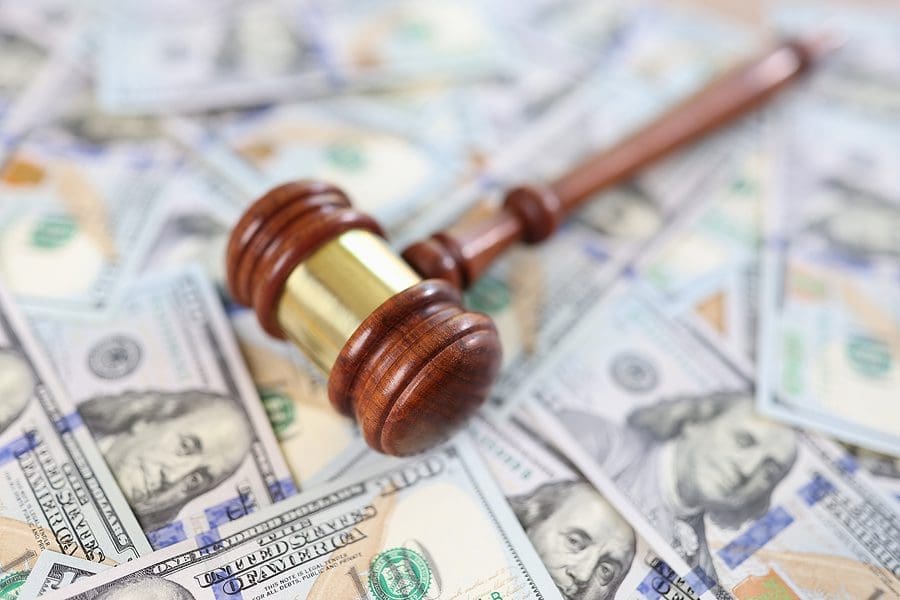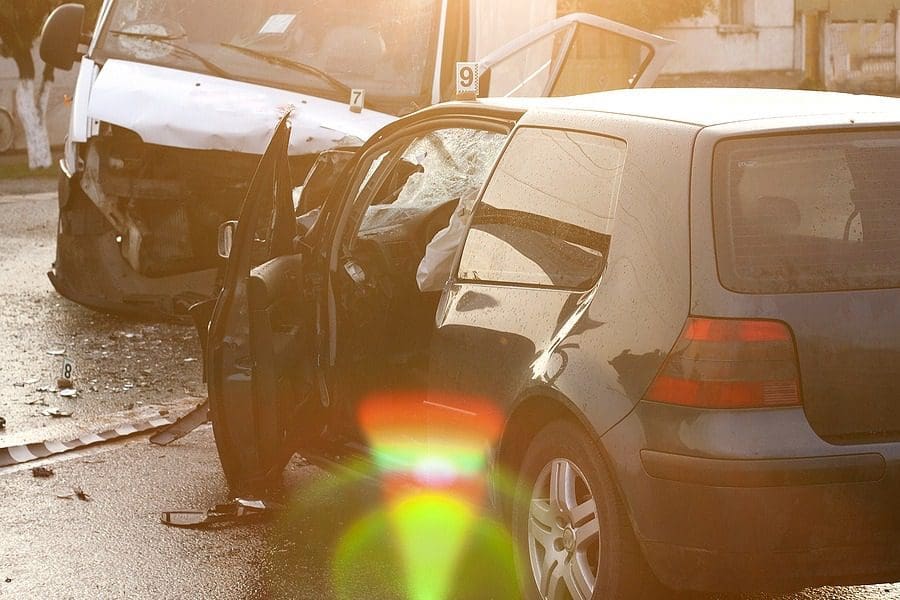JONES LAW GROUPYour Lawyers for Life! Personal Injury Law Firm in St. Petersburg


You could still obtain compensation even if you were partly at fault for the car accident that resulted in your injury, thanks to the legal principle known as “comparative negligence.” Even though you contributed to the accident, that doesn’t necessarily mean you can’t get money for your medical bills and other expenses. The attorneys with […]
Call our personal injury law office directly at (727) 512-9847
Find out today! At Jones Law Group in St. Petersburg, FL, we would like to hear from you. Contact us for a free personal injury case consultation.
Or call our personal injury law office at (727) 512-9847
Get educated on the Florida's personal injury laws and more.
You could still obtain compensation even if you were partly at fault for the car accident that resulted in your injury, thanks to the legal principle known as “comparative negligence.” Even though you contributed to the accident, that doesn’t necessarily mean you can’t get money for your medical bills and other expenses.
The attorneys with Jones Law Group would like to share some information to give you an understanding of comparative negligence and how it may apply to your case. We can also work to help you obtain as much compensation as possible. Call 727-571-1333 or contact us online for a free consultation to learn more.
Comparative negligence applies in cases where more than one party is responsible for causing harm or injury to another party.
Under comparative negligence, the degree of fault or responsibility of each party involved in an incident is considered, and damages are allocated accordingly. If a plaintiff is partially responsible for their injuries or damages, they’ll lose compensation based on their percentage of fault.
For example, suppose you’re 20% at fault for the accident because you were speeding, and the other driver is 80% to blame for running a red light. Your recovery of damages would be reduced by 20%. If your damages were $100,000, the most you could receive would be $80,000.
Florida is what’s known as a “pure comparative negligence” state. This means you can still recover damages even if you’re found to be primarily at fault for your own injuries. Using the above example, suppose your share of the blame was 80%. You could still sue the other driver for 20% of your damages.
Comparative negligence could make it challenging to recover total compensation for your injury. Insurance companies often try to shift as much blame as possible onto the plaintiff to reduce their liability.
In addition, Florida also has a four-year statute of limitations for personal injury claims, which means that you have four years from the date of the accident to file a lawsuit. You may lose your right to recover damages if you miss the deadline.
An experienced attorney can help you navigate Florida’s comparative negligence law. They can gather evidence, negotiate with insurance companies, and build a solid case to maximize your recovery of damages. They can also help ensure the lawsuit is filed within the statute of limitations and fully protect your rights.
Comparative negligence can arise in various car accident scenarios, where multiple parties may sometimes be at fault. Here are some common scenarios:
In a rear-end collision, the driver who strikes the vehicle in front of them is usually to blame. However, if the driver in front tailgates or suddenly slams on their brakes, they may be partially at fault for the accident.
If a driver hits a pedestrian, the driver is usually at fault. However, if the pedestrian was jaywalking or crossing against the signal, they may be found partially at fault for their injuries.
If you suffered an injury in an accident and weren’t wearing a seatbelt, you may be found partially at fault for your injuries.
Comparative negligence can create several issues in personal injury cases, including:
Determining fault can be complex in accidents involving multiple vehicles. The insurance company assesses the driver’s actions and degree of fault to determine the allocation of damages.
Suppose Driver A suffers a traumatic brain injury in an accident involving two other motorists, Drivers B, and C. Driver A has $500,000 in damages. 50% of the fault goes to driver B because they were driving while distracted, and driver C was 40% to blame because they were speeding. Driver A is 10% at fault for their injury because they didn’t wear their seatbelt.
Then, driver A could sue Driver B for 50% of their damages ($250,000) and Driver C for 40% ($200,000). Since Driver A was 10% to blame, they won’t be able to recover the other $50,000.
Evidence plays a crucial role when determining shared liability in a personal injury case. Here are some common types of evidence we use to determine shared liability:
Again, cases involving comparative negligence can be highly complex. But a Jones Law Group attorney can spell everything out and provide the support you need during this difficult time. Use our online contact form or call 727-571-1333 for a free case evaluation as soon as possible.

Motorcyclists hear about the dangers of riding on an almost daily basis. They have all heard that there are only two types of motorcycle riders, those that have laid their bike down and those that haven’t…yet. Everyone knows that motorcycles are cheaper to operate and better for the planet than cars, but are there actually […]

Any kind of car accident can be catastrophic, of course, but head-on collisions are particularly horrible. While these types of accidents are, thankfully, fairly rare, they tend to either be fatal, or result in injuries that can have lifelong consequences. Safe driving is obviously always a priority, no matter where you live. But in a […]

Staircase hazards such as poor lighting, clutter, loose handrails, damaged steps, and slippery steps can cause slips and falls. Summary Interactions with staircases are a common part of everyday life, but they can become hazardous in ways we often overlook. Dim lighting can make steps harder to see, uneven or damaged steps can pose tripping […]

Thanksgiving is when families and friends come together to celebrate, share a meal, and express gratitude. It’s a joyful occasion, but Thanksgiving injuries due to negligence can ruin a beautiful holiday. Three types of personal injury accidents – car accidents, fires, and slip and fall accidents – are the primary culprits. Jones Law Group attorneys […]

Summary When most people think about truck accidents caused by large trucks, they usually picture semi-trucks that weigh 80,000 pounds. But there are many kinds of large trucks, and they can all result in devastating accidents leading to catastrophic injuries – and worse. The following is a look at some of these trucks and information […]

It may seem to be a completely obvious statement to make, but roads are slippery when wet. Essentially, when it rains, there is a layer of water between the tires of your vehicle and the road which reduces the friction. This cause your car to have less grip, increases stopping distances and occasionally causes hydroplaning.[1] […]
Speak with us before time runs out! In Florida, you have a limited window to file a personal injury case, so speak to an Attorney today.
Call our personal injury law office directly at (727) 512-9847
Jones Law Group is a dedicated personal injury lawyer in St. Petersburg, FL, serving the Tampa Bay area since 2006. Our experienced attorneys specialize in car accidents, slip and fall cases, employment law disputes, construction law issues, and overtime wage claims, fighting for maximum compensation on a contingency fee basis. Contact us for a free consultation to discuss your case.
Call our personal injury law office at (727) 512-9847
© Copyright 2006–2025 Jones Law Group Attorneys at Law. All rights reserved. Privacy Policy Terms of Use
Attorney Advertising.
The information on this website is for general information purposes only. Nothing on this site should be taken as legal advice for any individual case or situation. This information is not intended to create, and receipt or viewing does not constitute, an attorney-client relationship. Past results do not guarantee similar outcomes.
Are you injured or wronged and interested in a consultation? Fill out the form for a free consultation with us.